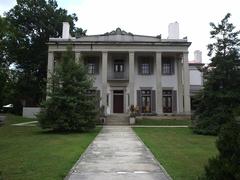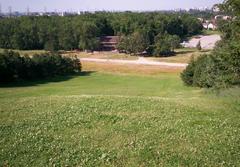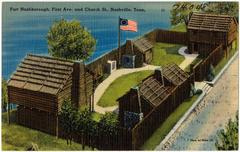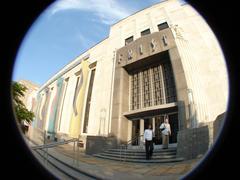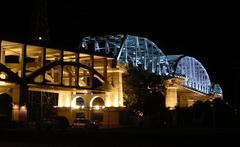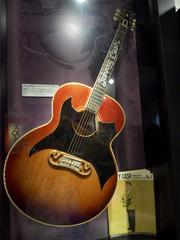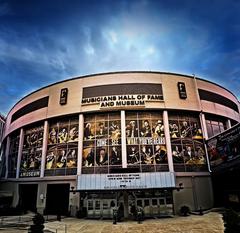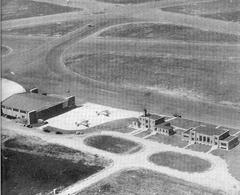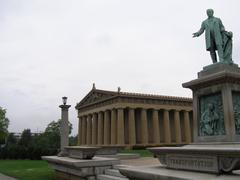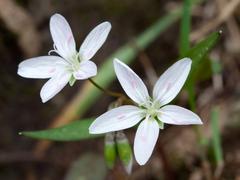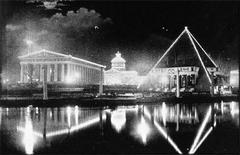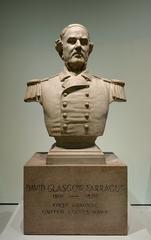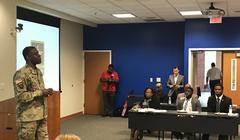Debra K. Johnson Rehabilitation Center
Debra K. Johnson Rehabilitation Center: Visiting Hours, Tickets, and Visitor Information in Nashville
Date: 04/07/2025
Introduction
The Debra K. Johnson Rehabilitation Center (DJRC), formerly known as the Tennessee Prison for Women, serves as a pivotal institution in Tennessee’s correctional landscape. Situated in Nashville, DJRC has transitioned from a traditional correctional facility into a center that emphasizes rehabilitation, education, and family reunification. While not a conventional tourist destination, DJRC offers a window into the transformative practices of criminal justice reform, restorative justice, and community support in Tennessee. Educational group visits, innovative programs such as the Lipscomb Initiative for Education (LIFE), and family-centered visitation initiatives provide meaningful engagement for both families and those interested in social change (Lipscomb LIFE Program).
Families and friends of incarcerated individuals are supported through specialized programs and community resources, notably the Child Visitation Program and the Family Reconciliation Center. These initiatives are designed to preserve and strengthen family bonds, which research consistently links to improved rehabilitation outcomes (KidCentral TN). This comprehensive guide details everything prospective visitors need to know, including eligibility, scheduling, rules, support options, and practical travel tips, while also highlighting DJRC’s broader impact on social reform (Tennessee Department of Correction DJRC).
Table of Contents
- Introduction: Overview of DJRC and Visitor Information
- Family Visitation Programs
- Community Support: Family Reconciliation Center
- Practical Visitor Information
- Frequently Asked Questions (FAQ)
- Community Impact and Volunteer Opportunities
- Conclusion and Visitor Tips
Overview of Visiting DJRC
History and Significance
Established as Tennessee’s primary women’s prison, DJRC’s history reflects the evolution of correctional philosophies—from punitive measures to rehabilitative and restorative approaches. The center now stands at the forefront of reform, offering educational and family-focused programs that are recognized statewide.
Educational Visits and Tours
DJRC is not open for general walk-in visitation. However, educational group tours can be arranged by appointment. These visits are designed for researchers, students, and community organizations interested in learning about correctional education and rehabilitation. Highlights include a look at the facility’s history, community reintegration efforts, and the LIFE program, which enables incarcerated women to pursue higher education through a partnership with Lipscomb University (Lipscomb LIFE Program).
How to Arrange a Visit:
- Contact Kelli Garrett, Executive Director and Director of Transitions Program, at (615) 966-1113 or [email protected].
- Visits are strictly by appointment for educational purposes.
- Security protocols must be followed; public, unscheduled visits are not permitted.
Family Visitation Programs at DJRC
Child Visitation Program
Administered by the Tennessee Department of Correction, the Child Visitation Program at DJRC allows eligible incarcerated mothers to spend two weekends per month with their children or grandchildren, ages three months to 10 years. This program includes overnight stays, fostering family reunification and emotional support—key elements proven to improve rehabilitation outcomes for both mothers and children (KidCentral TN).
General Visitation Information
In addition to the child-focused program, DJRC permits regular visitation for families and friends. All visitors must be pre-approved and follow strict facility protocols. While public visiting hours are not published, visitors should contact DJRC directly for up-to-date schedules and requirements. Security screenings and adherence to prohibited item policies are mandatory.
Community Support: The Family Reconciliation Center
The Family Reconciliation Center, located about 7–10 minutes from DJRC, offers free lodging and support services for families visiting incarcerated loved ones. The center provides:
- Five bedrooms (including accessible rooms and accommodations for children)
- Infant amenities (Pack ‘n Play)
- Linens, towels, toiletries, and a stocked food pantry
- Free WiFi, computers, coffee/tea, a meditation garden, picnic area, and TVs in most rooms
- A secure, welcoming environment (no alcohol, drugs, or weapons permitted)
Reservations are required, and a phone intake must be completed before the first stay. The center operates on a donation basis, with a suggested contribution of $10 per household per day. However, all families are welcome regardless of ability to pay (Family Reconciliation Center).
Practical Visitor Information
- Facility Address: 3881 Stewarts Ln, Nashville, TN 37218 (TDOC DJRC)
- Family Reconciliation Center: 4908 Kentucky Avenue, Nashville, TN 37209 (Family Reconciliation Center)
- Visitation Scheduling: Contact DJRC directly to confirm schedules and protocols.
- Eligibility: The Child Visitation Program serves eligible incarcerated mothers and children (3 months to 10 years); other visits require prior approval.
- Transportation: The Family Reconciliation Center does not provide transportation, but both facilities are accessible by car or taxi.
Frequently Asked Questions (FAQ)
Q: Who is eligible for the Child Visitation Program?
A: Incarcerated mothers at DJRC (and the Women’s Therapeutic Residential Center) with children/grandchildren aged 3 months to 10 years.
Q: How do I schedule a visit at DJRC?
A: Contact the DJRC visitation office for scheduling, approval, and to receive current rules.
Q: Is there a cost for staying at the Family Reconciliation Center?
A: No, all services are free, though donations are appreciated.
Q: Can I bring a pet to the Family Reconciliation Center?
A: Only service dogs compliant with ADA and Tennessee law are permitted.
Q: What items are not allowed during visitation?
A: Weapons, drugs, alcohol, and other prohibited items according to DJRC policy.
Community Impact and Volunteer Opportunities
DJRC’s family visitation programs, in partnership with the Family Reconciliation Center and community volunteers, exemplify Nashville’s commitment to restorative justice. Volunteers play a vital role in maintaining the hospitality house, supporting families, and building a welcoming atmosphere. Those interested in volunteering or donating can contact the Family Reconciliation Center directly (Family Reconciliation Center).
Conclusion and Visitor Tips
The Debra K. Johnson Rehabilitation Center stands as a testament to Tennessee’s progressive correctional philosophy, where rehabilitation, education, and family connections are central. Through educational tours, the LIFE program, and family visitation initiatives like the Child Visitation Program, DJRC offers hope and practical support for incarcerated women and their loved ones.
To ensure a smooth visit:
- Always schedule visits in advance and confirm all requirements.
- Leverage community resources such as the Family Reconciliation Center for support.
- Stay updated via official channels and be mindful of all facility rules.
- Consider engaging with volunteer opportunities to further support community-oriented justice reform.
For comprehensive, current information, contact DJRC and affiliated organizations directly. Your engagement—whether as a visitor, supporter, or volunteer—contributes to meaningful change in the lives of incarcerated women and their families (Tennessee Public Index).
References
- Lipscomb LIFE Program
- KidCentral TN
- Family Reconciliation Center
- Tennessee Department of Correction DJRC
- Tennessee Public Index - DJRC
